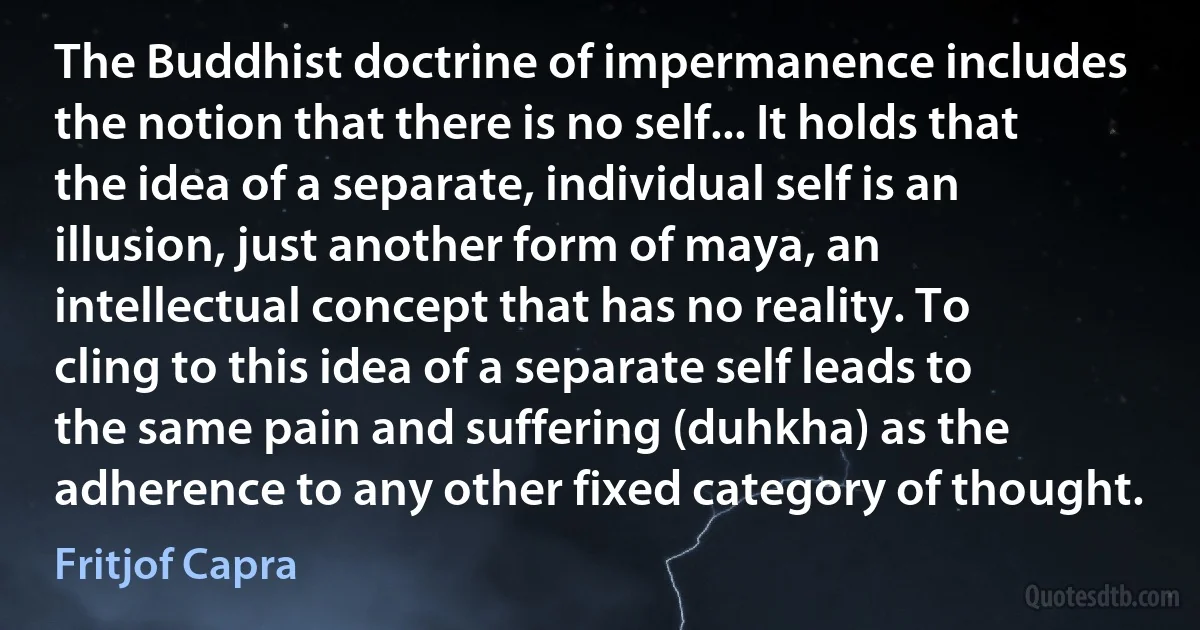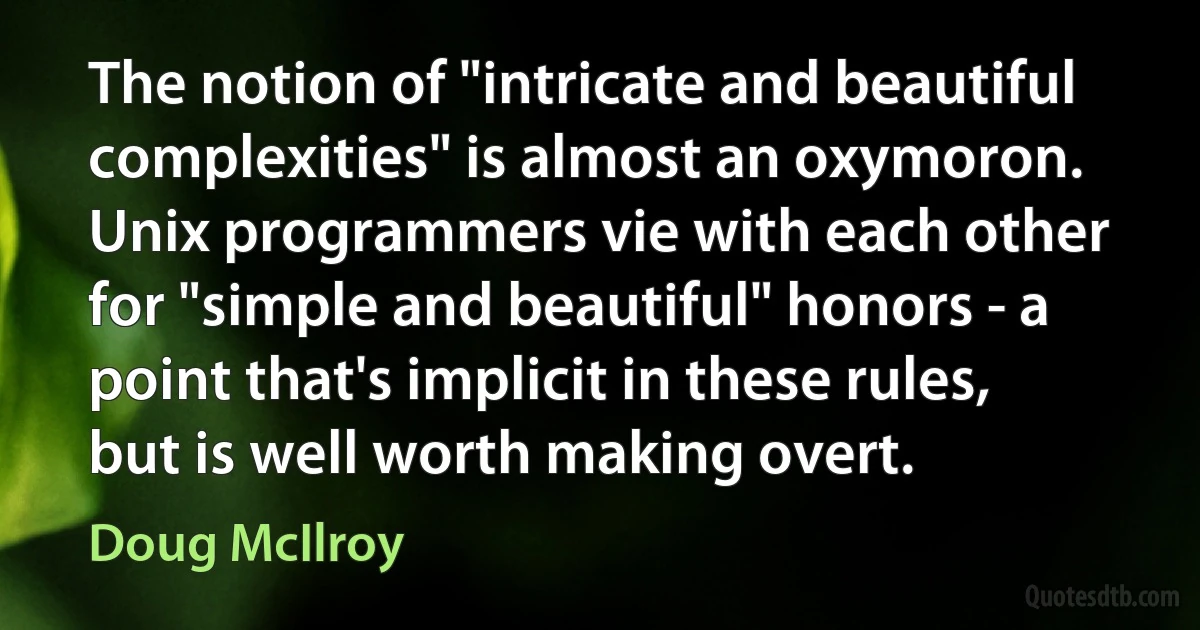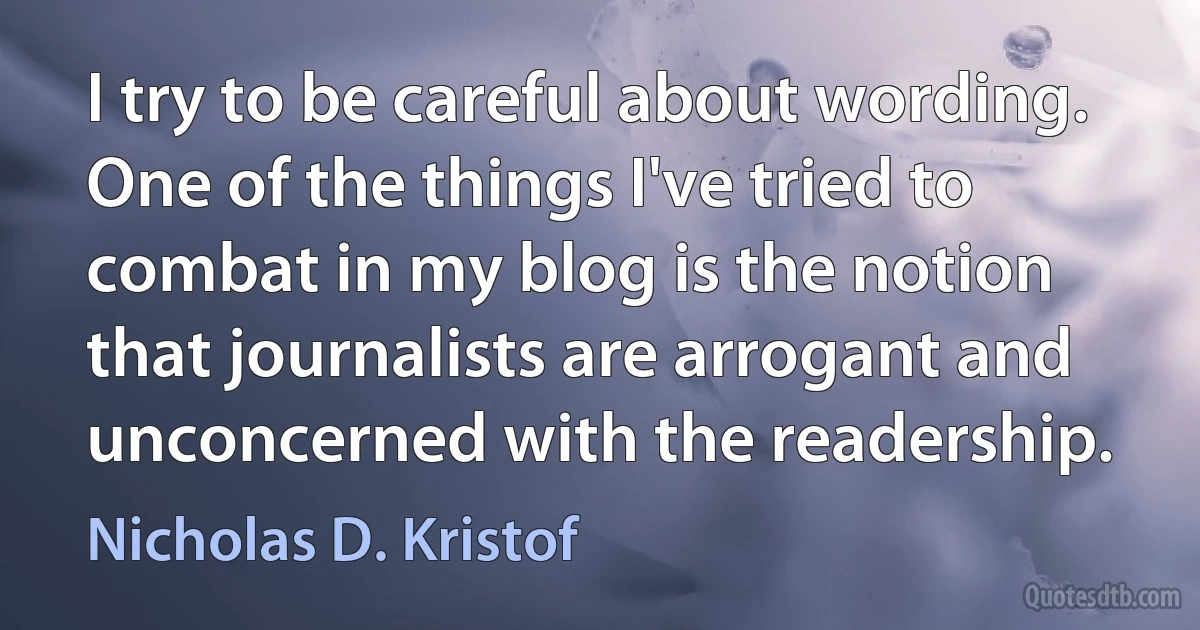Notion Quotes - page 24
I find poetic links, the logic of poetry in cinema, extraordinarily pleasing. They seem to me perfectly appropriate to the potential of cinema as the most truthful and poetic of art forms. Certainly I am more at home with them than with traditional theatrical writing which links images through the linear rigid logical development of plot. That sort of fussily correct way of linking events usually involves arbitrarily forcing them into sequence in obedience to some abstract notion of order. And even when this is not so, even when the plot is governed by the characters, one finds that the links which hold it together rest on a facile interpretation of life's complexities.

Andrei Tarkovsky
I was almost driven to madness in considering and calculating this matter. I could not find out why the planet would rather go on an elliptical orbit. Oh, ridiculous me! As the liberation in the diameter could not also be the way to the ellipse. So this notion brought me up short, that the ellipse exists because of the liberation. With reasoning derived from physical principles, agreeing with experience, there is no figure left for the orbit of the planet but a perfect ellipse.

Johannes Kepler
Let us... be careful of admitting into our souls the notion that there is no truth or health or soundness in any arguments at all; but let us rather say that there is as yet no health in us, and that we must quit ourselves like men and do our best to gain health-you and all other men with a view to the whole of your future life, and I myself with a view to death.

Socrates
I'm perhaps best known for three different kinds of work, which seem disparate to many people but to me run as a unified theme. These are my contributions in conceiving the notion of autopoiesis - self-production - for cellular organization, the enactive view of the nervous system and cognition, and a revising of current ideas about the immune system.

Francisco Varela
This is Bruno's fundamental idea. He says: ”To recognize this unity of form and matter in all things, is what reason is striving to attain to. But in order to penetrate to this unity, in order to investigate all the secrets of Nature, we must search into the opposed and contradictory extremes of things, the maximum and the minimum” It is in these very extremes that they are intelligible, and become united in the Notion; and this union of them is infinite Nature. "To find the point of union is not the greatest matter; but to develop from, the same its very opposite, this is the real and the deepest secret of the art” It is saying much if we speak of knowing the development of the Idea as a necessity of determinations; we shall see later how Bruno proceeded to do this. He represents the original principle, which is elsewhere known as the form, under the Notion of the minimum, which is at the same time the maximum One, which at the same time is All; the universe is this One in All.

Georg Wilhelm Friedrich Hegel
In 1936 the notion of a computable function was clarified by Turing, and he showed the existence of universal computers that, with an appropriate program, could compute anything computed by any other computer. [...] In some subconscious sense even the sales departments of computer manufacturers are aware of this, and they do not advertise magic instructions that cannot be simulated on competitors machines, but only that their machines are faster, cheaper, have more memory, or are easier to program.

John McCarthy (computer scientist)
Even though principles of rationality seem as often violated as followed, we still cling to the notion that human thought should be rational, logical, and orderly. Much of law is based upon the concept of rational thought and behavior. Much of economic theory is based upon the model of the rational human who attempts to optimize personal benefit, utility, or comfort. Many scientists who study artificial intelligence use the mathematics of formal logic-the predicate calculus-as their major tool to simulate thought. [...] Human thought is not like logic; it is fundamentally different in kind and spirit. The difference is neither worse nor better. But it is the difference that leads to creative discovery and to great robustness of behavior.

Donald Norman
The prejudices of the second species, since they impose upon the intellect by the sensual conditions restricting the mind if it wishes in certain cases to attain to what is intellectual, lurk more deeply. One of them is that which affects knowledge of quantity, the other that affecting knowledge of qualities generally. The former is: every actual multiplicity can be given numerically, and hence, every infinite quantity; the latter, whatever is impossible contradicts itself. In either of them the concept of time, it is true, does not enter into the very notion of the predicate, nor is it attributed as a qualification to the subject. But yet it serves as a means for forming an idea of the predicate, and thus, being a condition, affects the intellectual concept of the subject to the extent that the latter is only attained by its aid.

Immanuel Kant
Several actual worlds without one another are not, therefore, impossible by the very concept, as Wolf hastily concluded from the notion of a complex or multiplicity which he deemed sufficient to a whole, as such, but only on condition that there exist but one necessary cause of all things. If several are admitted, several worlds without one another will be possible in the strictest metaphysical sense.

Immanuel Kant
Now the maximum of perfection is called ideal, by Plato, Idea - for instance, his Idea of a Republic - and is the principle of all that is contained under the general notion of any perfection, inasmuch as the lesser grades are not thought determinable but by limiting the maximum. But God, the Ideal of perfection, and hence the principle of cognition, is also, as existing really, the principle of the creation of all perfection.

Immanuel Kant
The general theory of economic equilibrium was strengthened and made effective as an organon of thought by two powerful subsidiary conceptions - the Margin and Substitution. The notion of the Margin was extended beyond [Utility]] to describe the equilibrium point in given conditions of any economic factor which can be regarded as capable of small variations about a given value, or in its functional relation to a given value.

John Maynard Keynes
Luther understands monasticism as a product of an egoistic lovelessness that withdraws from one's duties in the world. By contrast, this-worldly work in a vocation appears to him to be a visible expression of brotherly love, a notion he anchors in a highly unrealistic manner indeed and in contrast-almost grotesquely-to the well-known passages of Adam Smith.

Max Weber
Out of the beliefs nourished by the agrarian myth there had arisen the notion that the city was a parasitical growth on the country. Bryan spoke for a people raised for generations on the idea that the farmer was a very special creature, blessed by God, and that in a country consisting largely of farmers the voice of the farmer was the voice of democracy and of virtue itself. The agrarian myth encouraged farmers to believe that they were not themselves an organic part of the whole order of business enterprise and speculation that flourished in the city, partaking of its character and sharing in its risks, but rather the innocent pastoral victims of a conspiracy hatched in the distance. The notion of an innocent and victimized populace colors the whole history of agrarian controversy, and indeed the whole history of the populistic mind.

Richard Hofstadter
If someone asks us which of these is more perfect, intellect or sense, the intelligible or the sensible, we shall promise to answer promptly, if he will first give us an answer to the following question. You know, my inquiring friend, that there is some power in you which has a notion of each of these things-a notion, I say, of intellect itself and of sense, of the intelligible and the sensible. This is evident, for the same power which compares these to each other must at that time in a certain manner see both. Tell me, then, whether a power of this kind belongs to intellect or sense? ... Sense, as you yourself have shown, can perceive neither itself nor intellect and the objects of intellect; whereas intellect knows both. ... Therefore, intellect is not only more perfect than sense but is also, after perfection itself, in the highest degree perfect.

Marsilio Ficino
Sociopaths are not inhibited by the notion that it's wrong to be addicted, or wrong to buy illegal drugs. Also, drinking or taking drugs can be a lot of fun, and even if it's not, it can dull that painful boredom for a while. So can certain other things, like taking risks, and particularly if you take a risk-averse person and you can manipulate him or her into taking risks, that's really fun.

Martha Stout



